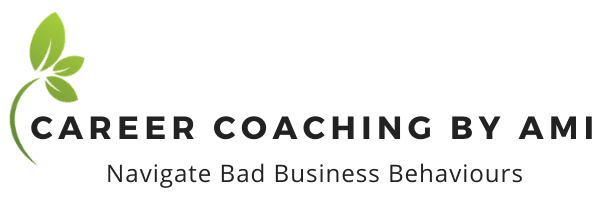Does '#nofilter' Exist at Work?
In my experience, we’re not often told the truth about ourselves - especially in a work setting. The workplace is like an ocean full of creatures with competing interests. These interests can be similar or vastly different.
When people’s behaviour in the workplace makes me cringe, I usually feel bad for them. One of the first things that come to my mind is that likely “no one ever gave them feedback”. Probably, no one had coached them about the impact of their behaviour or had a heart-to-heart talk with them. People around them maybe tolerating this behaviour or have developed coping mechanisms to deal with the behaviour.
I was asked to observe a meeting with a senior leader and his team. The VP wanted my candid observations about the interactions on his team, including his own. He wanted an external perspective on what he can do based on his behaviours to hone his skills and those of his teams.
There was a great buzz in the room at the meeting. The team discussed challenges and paired up to provide each other suggestions. I heard a lot of chatter about creative problem-solving ideas. And suddenly, one of the very outspoken and passionate managers slammed her hand on the table. She continued her peer conversations with passion and rigour. The VP seemed to have as much curiosity about her behaviour as I did. She frequently slammed her palm on the table to make a point.
During the one-on-one debrief with the VP he recognized that the hand slamming behaviour is not ideal, however, he was hesitant to address the behaviour with the manager. When I probed ‘why?’, here were his responses:
The behaviour doesn’t have a large enough impact on daily activities. She runs her division well and she meets her targets.
I’d like to observe her a little longer and see if she changes.
I’m not sure how she’ll react to my feedback. I don’t want to be the bad guy. If I confront her, this may cause conflict between us.
People won’t say it - they can tolerate the behaviour and put their energy into other aspects of the business or invest their time in other employees. I’ve heard many leaders say “why waste my time with Employee A when I can and know that if I train Employee B they’ll accept it”. Some leaders automatically right off employees when they feel like they are not engaged. They don’t take the time to investigate or get to know the individual to further develop them in efforts to indirectly enhance the business.
Is this fair? No. With all things being equal - I doubt this VP would recommend the employee who slammed her hand on the table for a new project or role. It will remain unsaid and many will know why, but sadly she won’t know and it would be a missed opportunity for her to fine-tune her growth potential.
Unless someone tells you about the impact of your behaviour you won’t know and you’re going to keep doing it. And if no one tells you straight up - how can you change it? It would be a lot more difficult.
Common reasons why you’re not told the truth at work:
People would rather spend time and energy on the business and other people.
No one wants to be the cause of conflict.
People don’t think it’s their job.
You may be seen as competition.
Tips on how to seek the truth about yourself and increase your self-awareness:
Brutal honesty from good friends and family. You may not want to hear it, but when you get called out about something – he/she usually has your best intentions in mind.
Openness to grow. Jack Nicholson famously said “you can’t handle the truth!” in the movie a Few Good Men. Don’t ask for feedback if you’re not ready to receive it in a constructive way.
Ask for very specific feedback. Sheila Heen cited a very concise feedback question that we can all use, “what’s one thing you see me doing - or failing to do - where I’m getting in my own way?”
ACTION: Reflect on how ready you are to receive feedback about yourself? How can you use that information as part of your learning experience? How can giving feedback to someone create a more meaningful relationship and help to build the potential of your employee or co-worker?
Originally published at Excelsior.
